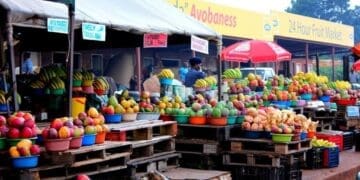The Mpumalanga government is rolling out a wide-scale campaign to formalise township spaza shops to promote fair trade, improve safety and help informal businesses access government support.
However, while officials insist formalisation is about economic inclusion, some township traders say the process is inaccessible, confusing and unsupported.
“Yes, I’ve heard about it, but I think it’s insane since this is informal trading unless I’m lacking knowledge. Still, it’s a great initiative if it can help our local economy grow and expand, and will force small owners to comply,” said Lehlogonolo Zonke, a spaza shop owner.
According to cooperative governance, human settlements and traditional affairs MEC Speed Mashilo more than 11,000 applications have been received from small traders seeking to legalise their operations, with over 5500 coming from foreign nationals.
“No non-complying application with the laws of the Republic shall be approved. So far, only 3851 spaza shops have been registered,” Mashilo said during the tabling of his budget.
“The by-law enforcement drive is underway in municipalities through a multi-stakeholder approach to clamp down on non-complying outlets.”
Mashilo added that the goal was not to exclude informal traders, but to bring about order and fairness in the township economy.
However, Zonke, who has run his spaza shop for eight years, told Vutivi News that he has had issues with registering.
“I’ve struggled because of the lack of information. Everything I know, I had to dig for myself on social media. I tried registering this year, but I was told applications were closed,” he said.
Zonke believes the formalisation drive may unintentionally benefit foreign shop owners more than locals.
“Most wholesalers are owned by foreign traders, and it’s very tough to compete with them. They have a full advantage over us local traders, from better stock prices to established supplier networks,” he said.
There’s also a deep sense of frustration over broken promises.
One trader from Nkomazi, Elina Masango, said they had been hearing for years that registering would open doors to funding, training and supplier networks, but those promises were yet to materialise.
“They speak about us in budget speeches, but they never come to the ground. We don’t see them in the streets or the townships helping us fill out these forms or understand the process,” she said.
“We want to grow. We want to improve our businesses. But formalisation should come with real, visible support, not just rules.”























































